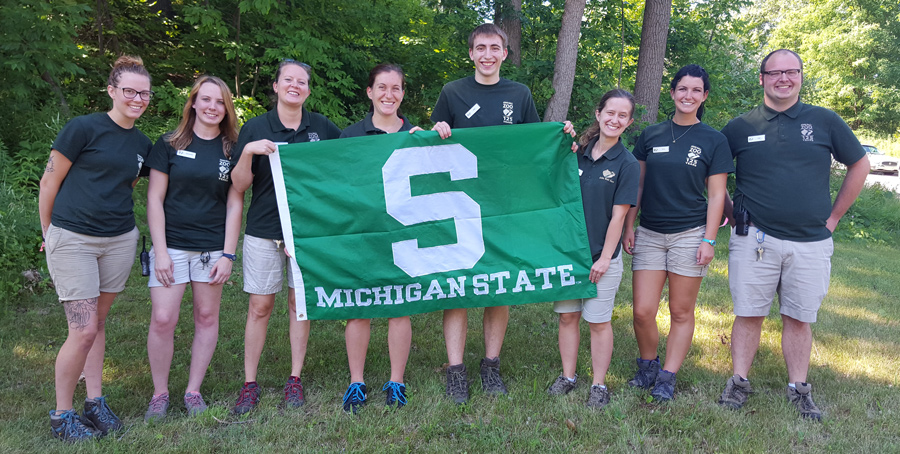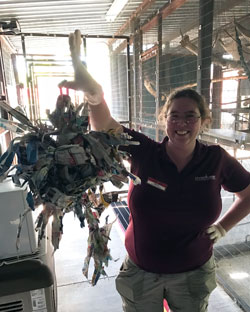Zoo and Aquarium Science
Background & Objectives
Today's zoos and aquaria have undergone a transformation. They act as an interface between humans and animals. They are living laboratories for gaining extensive data about animal behavior, reproduction, physiology, nutrition, genetics, and disease. The role of the educator/scientist has expanded to outreach programs that now permeate our news, entertainment media, and schools.
Our interdisciplinary curriculum in Zoo & Aquarium Science has been designed to include many of the critical subjects encountered in the zoo industry. Students must complete classes in core subjects such as genetics, animal behavior, ecology, evolution, and vertebrate comparative anatomy, along with specially designed classes and seminars in zoo and aquarium science. Students supplement these required classes with additional courses that allow specialization within the field.
The program benefits immeasurably from the cooperation and participation of the Association of Zoos & Aquariums (AZA) accredited zoos and aquaria. Executive staff from many AZA institutions routinely lecture to our students on such topics as zoo animal nutrition; principles of animal husbandry; zoo ethics and responsibility; and behavioral welfare. The value of our well-established links with zoos and aquaria becomes priceless in our ability to place students in internships that reflect the student's interests and build upon their experience. Upon graduation, our students are prepared for the demands of a career in modern zoos and aquaria.
Students who have graduated from the program can be found in all lines of employment in zoos and aquaria throughout the country (e.g., zookeepers, zoo administration, exhibit design, research in captivity and/or field projects, etc.), government agencies, businesses, and so forth.

Capstone Internship
We encourage our students to set their career goals early for real life experiences in the field. This prepares them for entry into the workforce and enhances their coursework and career options.
Students in the Zoo & Aquarium Science concentration must complete a full semester internship at a zoo or aquarium. These internships are professional work experiences that take place under the supervision of experienced professionals. Students typically complete internships as juniors or seniors.
Student interns are expected to become familiar with the day-to-day operations of their host facility and interact with staff and visitors whenever possible. Most host facilities expect interns to be knowledgeable of recent advances in their science.

Benefits of an Internship
- Merges the student's academic background with the practical work necessary for the host facility to achieve its goals
- Help produce the foundation for a background in the zoo & aquarium industry
- Develop interpersonal and communication skills
- Learn how subunits within an administrative facility interconnect to achieve common goals
Student Feedback
"I was able to do mostly everything a keeper would do in their day-to-day activity. The internship allowed me to expand on what I had learned through school and previous animal care experiences." Lincoln Park Zoo Intern
"I think that the skills that I developed by learning from the keepers and working alone will help me at the start of my zoo career. It gave me a higher level of confidence in my ability to work alone with the animals and my ability to make decisions." Zoo Montana Intern
"Watching the way employees interact with each other and with management taught me volumes; I have been so focused on the animal aspect of my major that I had forgotten the human element. The human element is one of the hardest parts of a zookeeper's job." Potter Park Zoo Intern